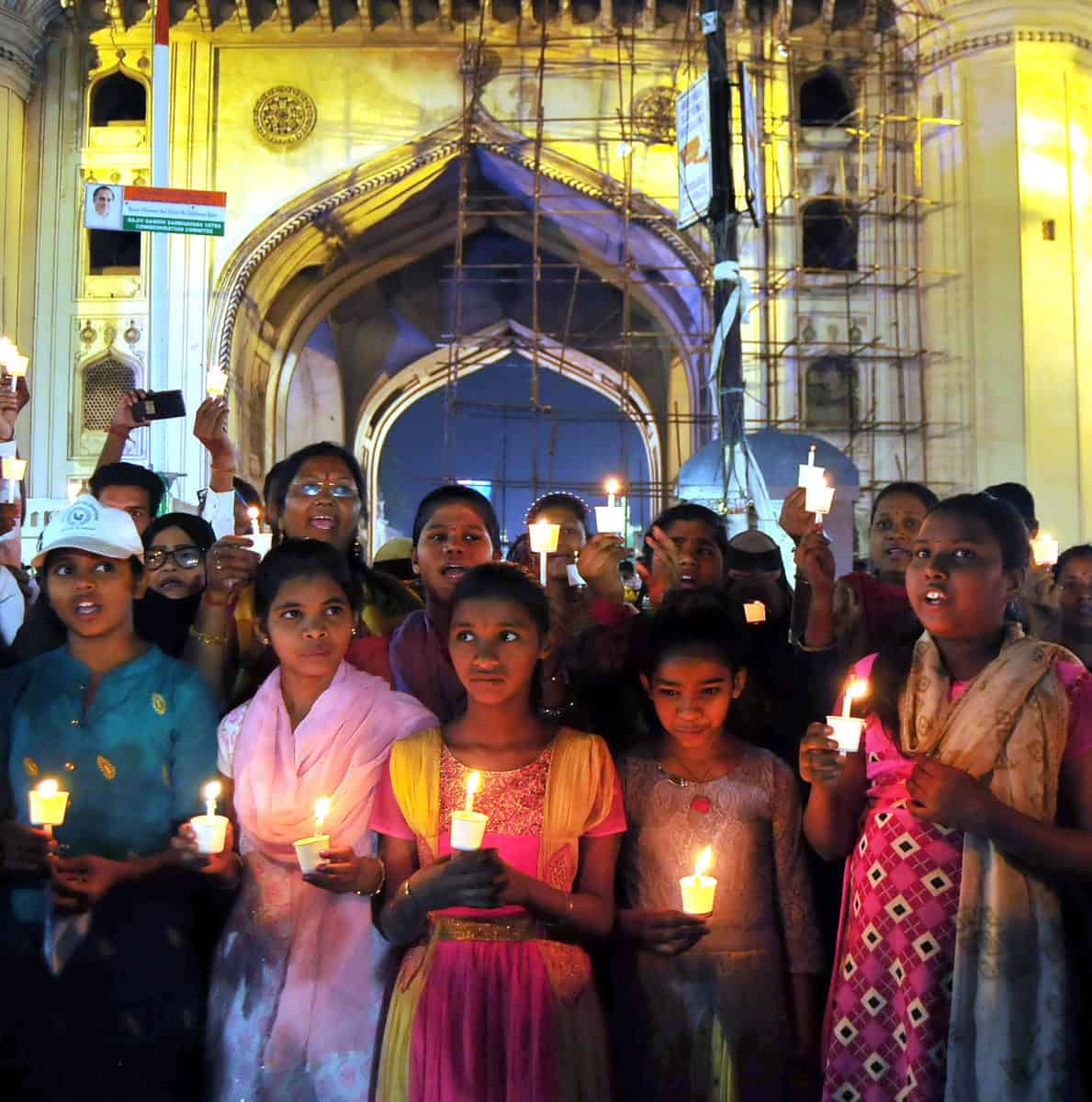By Syed Qamar Hasan
Hyderabad: It happened again. The brutal gang rape and murder of a 25-year-old veterinary doctor in Hyderabad on the intervening nights of November 27th and 28th.Just as it happened to a 23-year-old physiotherapist on that fateful night of December 16th, 2012 in New Delhi.
Similarity between two crimes
Amazingly there is so much of similarity between the two rapes, both young independent women on the threshold of careers cut down in the flower of youth. Apart from the ditto sickening and horrific optics involving the hapless women, the beastly perpetrators and the circumstances, there is an alarming and disturbing equivalency in the manner and style the common man, politicians, social activists, women organizations, NGO’s, journalists, TV anchors panelists, sportsmen and women have taken up the battle for this Hyderabad victim.
There is so much uniformity, almost surreal between the two incidents and the outcry despite the seven-year gap. The entire nation from Kashmir to Kanya Kumari was aghast at the barbarity and ferocity of the gang rape by six men violating Nirbhaya. The highest court of the country responding to the collective conscience of the public classified the case as rarest of the rare. A fast-track trial court, within nine months of its formation sentenced the four of the six rapists to death. One died in prison, the juvenile after a brief stay at the correctional center was freed rejecting 80,000 signature petition collected by Women Groups against his release.
But our the political system and the parties that run them seem to be oblivious of the seriousness of the crime. Parliaments and assemblies are now become shelter for those involved in rape or are facing rape charges.
And our legal system is dotted with ’ intricacies and lacunae, that the four to be hanged are still around, though incarcerated, have filed curative petitions after the Supreme Court dismissed their appeals against the death sentence. According to law experts, they have one more option of putting mercy petition to the President of India, which hardly will hold ground. The then UN Human Rights Chief, Michelle Bachelet had to qualify rape and violence against women in India as a “national problem” to be dealt with finding ‘national solutions.”
Now after seven years, we have another heinous crime almost of the same violent proportions staring in our faces. Making a mockery of every law enacted by the government that was recommended by the Justice J.S.Verma Committee formed after Nirbhaya outrage. And since then there is an ongoing process of further strengthening the laws to provide maximum punishment to every perpetrator in accordance with the age and gravity and yet this heinous crime continues unabated. Apparently the perpetrators are not afraid or to be more precise sure of the law’s inability to punish them.
Once again the whole country is on the boil. Candlelight vigilance, angry processions shouting their heads off for the heads of the monstrous psychopaths.
Capital punishment
But time and again, whenever capital punishment is demanded rape-related offenses, psychologists, psychiatrists, psychoanalysts have argued against capital punishment. Stressing killing, hanging, lynching the offenders is no guarantee that malevolency and deviancy against women will end. They claim capital punishment was a tool used by earlier primitive societies and polities.
French psychiatrists Robert and Francoise Castle who developed the term psychiatric society, stress the use of coercion to regulate disturbing elements in society, not punitively but therapeutically.
Gender sensitization and holding workshops, educating youths of their responsibilities in building healthy societies, constant and regular workshops by experts in the field to bring about a change in patriarchal attitudes towards women rights and their empowerment.

